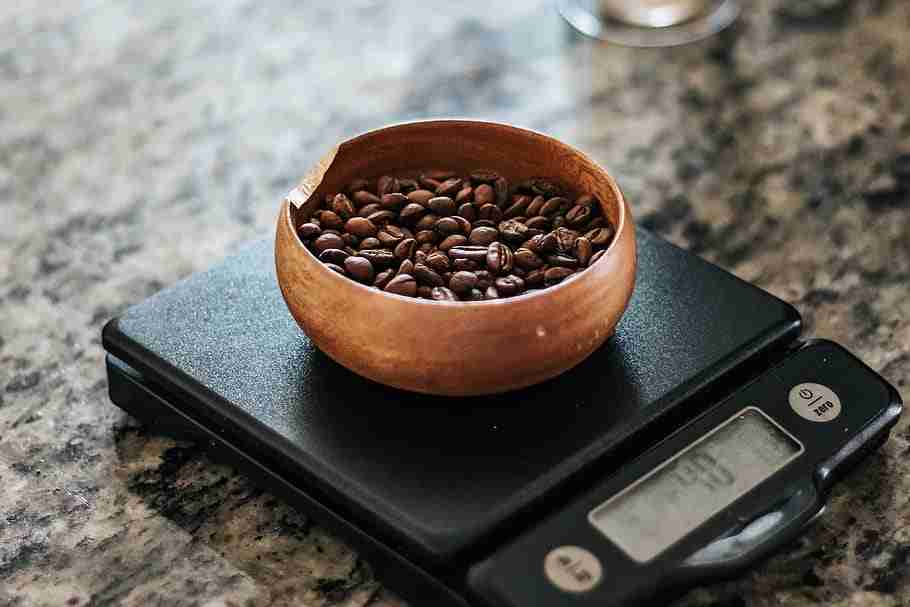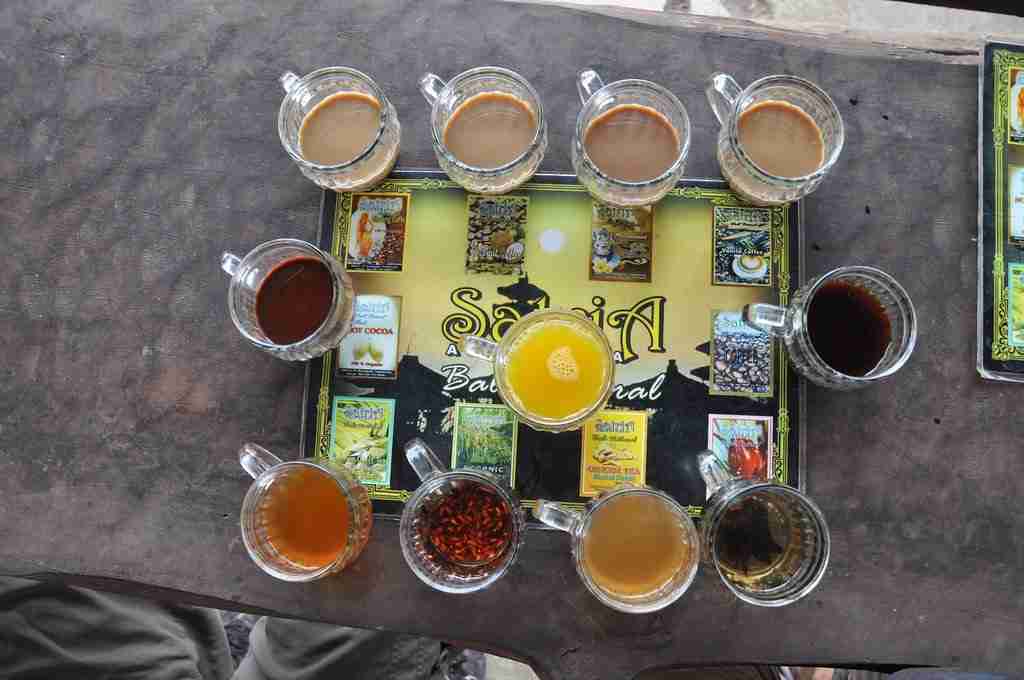
Coffee is currently one of the most popular drinks on the planet. It has various strengths: short black, long black, latte, and cappuccino, among others.
The thing is all these choices are variations of the same flavor: coffee with milk and sugar. There was little or no enjoyment to be had from the coffee.
That’s was in the distant past. Coffee now comes in almost any flavor, strength, or combination thanks to gourmet “coffee that makes coffee a different experience. Little wonder it is only set aside for a special occasion.
What Is Gourmet Coffee
Efforts are being made in the coffee industry to elevate the quality of coffee produced to the status of the wine industry. Imagine drinking a cup of coffee that tastes as if you were having a snack at the same time.
It improves the basic coffee taste, texture, aroma, and stimulant effect by adding a hint of caramel, bacon, or vanilla. This taste can be traced to the subtle variations in flavor and texture of coffee beans from particular parts of the world.
The term “gourmet coffee” is an umbrella term that covers the coffee beans themselves, and the aspects, activities, techniques, and experience needed to produce gourmet coffee. But what makes differentiates coffee as gourmet coffee?
How Is Gourmet Coffee Made
Gourmet coffee starts with an edible bean. The genetic characteristics of the seed fix the intrinsic quality of the coffee bean. The ecosystem also plays a part.
Growing quality coffee beans in an ideal environment and applying experienced Processing of the bean, are all parts of producing excellent gourmet coffee. The process of creating gourmet coffee starts with the coffee bean
The Coffee Bean

Coffee beans are one of the essential factors in determining a coffee’s gourmet status.
There are two main types of coffee beans, Arabica and Robusta.
While Arabica coffee beans are considered to be of high quality, the Robusta coffee bean is less expensive and more comfortable to grow of the two coffee types.
The best gourmet coffees are made from 100% Arabica beans because of the standard of flavor involved. The Arabica beans variety requires unique growing conditions because it is very susceptible to disease and pests. These plants need a high altitude of at least 1,200 meters and an average temperature of 20° C (70° F) to thrive.
The quality of the bean is dependent on how the grinds are processed. The best quality coffee beans come from small, local plantations that follow sustainable practices.
The Processing
Harvesting by hand is important because it ensures that only the ripe coffee cherries are plucked and used for Processing. They are then be water processed and sun-dried before they are roasted.
Experienced farmers, especially the roasting, handle all three steps. The roasting stage is vital because it is the secret behind its toasty flavor. Gourmet coffee producers have learned to create distinct flavors by using different levels of roasting (for example, light or medium roasts).
After being roasted to perfection, and the coffee beans are packed in a container that allows the coffee beans to expel natural gases. With the right packaging, the coffee beans are protected from humidity, and they can stay fresh for as long as possible.
The next step after packaging the coffee beans is grinding. The gourmet coffee beans are ground as soon as possible so that their unique aromas and tastes are retained. They are then ground according to the coffee type.
What is the Difference between Gourmet and Regular Coffee
How do you tell the difference between gourmet and regular coffee? They do taste similar because even regular coffee has its strengths. There is the cost of starts. The cost of gourmet coffee ranges from slightly expensive to extremely expensive. Let’s take a look at some of the differences between gourmet and regular coffee.
The type of coffee bean used.
Gourmet coffee is made from Arabica coffee beans which costs almost twice as much as Robusta beans. Most regular coffee brews are made from Robusta beans because it is cheaper, grows faster, and is easier to produce.
Robusta beans are not picky about where they are grown. They can grow at low elevations and yield more abundant crops for growers. The downside is the bitter taste making them not suited for gourmet coffee.
Arabica beans are much more potent and have a full taste, unlike the rubbery feeling that is associated with the Robusta bean variety. However, Arabica plants are more challenging to grow.
They also require more care and attention. In the end, the yield might not be as estimated. That is why the cost of labor and extra attention spent on the beans at all stages of production drives makes gourmet coffee an expensive but rewarding experience.
Farming Practices
Coffee, like any plant, is heavily dependent on the farming conditions. Soil type, humidity, plant health, and a variety of other variables determine a coffee’s flavor.
The Arabica coffee plant is difficult to grow because it needs the right altitude, humidity, precipitation, temperature, and sun exposure to grow.
It is best grown in mountainous tropical regions that have volcanic soil with lots of nutrients. The best gourmet coffee beans are grown on small farms where the farmers look after the beans with care. You rarely ever get gourmet coffee beans from factory farms with large plantations.
Robusta beans are grown in vast fields where chemical fertilizers are used to promote growth further. They are often mono-cropped, and so more land is needed for the cultivation of Robusta. These farming practices take a toll on the environment too.
The Difference in the Processing
Coffee roasters in the gourmet coffee industry have different roasting formulas that are different from the methods used by traditional coffee roasters. That smoky flavor comes from the beans being burnt until they are crispy.
Gourmet coffee can have any of the following flavors: blueberries, milk chocolate, honey, mangoes, star anise, and cane sugar, among others. It all lies in the roasting. Gourmet roasters roast the beans as light as possible to unlock the unique flavors of the coffee. Soil type, humidity, plant health, and a variety of other variables determine a coffee’s flavor.
Flavor Over Caffeine

Arabica beans contain more lipids and sugar than Robusta beans. Conversely, Robusta beans have more caffeine than Arabica beans. The difference in the taste between both varieties is due to the caffeine content. High levels of caffeine affect the coffee’s acidity and give it a bitter taste while the increased lipid and sugar content in Arabica gives it its smooth sweet taste.
The difference between gourmet coffee and regular coffee is the difference between bespoke clothes and factory-made clothes. One is of high quality and tailored to specific tastes while the other is bang average.
Why Gourmet Coffee Is Better
What is so special about gourmet coffee that makes it so expensive? Why do people think it is better than regular coffee? The reason why gourmet coffee is more expensive is simply that the extra effort is put into its production.
That is why it is of higher quality. As a matter of fact, each gourmet coffee has a different richness and texture from others. The beans used in producing gourmet coffee are roasted using a better process. Under-roasting or over-roasting is avoided. It is roasted just right, and that is why the taste is distinct.
Gourmet coffee manufacturing and roasting need high levels of knowledge, expertise, and care, all of which are absent in the Processing of other blends of coffee. One other reason for the great taste of gourmet coffee is that the producers do not mix lesser quality beans in the coffee.
The commercial coffee farms do not bother to remove defective and unripe beans during harvest. Such impurities like branches, leaves, or tiny stones may be roasted with the coffee beans. Consequently, the quality of the coffee reduces if though it might be cheaper.
Only premium quality coffee beans are used in producing gourmet coffee. The farmers involved in the production process hand-pick only the ripe fruits and check for defects and damages in the coffee before it is processed. There is a reason why the market for gourmet coffee is thriving despite how expensive it is.
That means that gourmet coffee offers a lot of value, and coffee drinkers are willing to pay for such a quality experience.
Gourmet coffee production is easy on the environment. The toll takes on the environment is minimal when compared to regular coffee production.
Arabica beans are grown in more sustainable ways that keep the ecosystem safe. Robusta beans are grown in huge fields where chemical fertilizers are used to promote growth further.
They are often mono-cropped and so more land is needed for the cultivation of Robusta. These farming practices take a toll on the environment and are not in line with sustainable agriculture practices.
Takeaway
Gourmet coffee is ranked in the same category as fine wine. Each gourmet coffee blend or bean has its own flavor and depth. It is the latest and more popular way to enjoy your coffee because of all the different flavors that you can explore.

